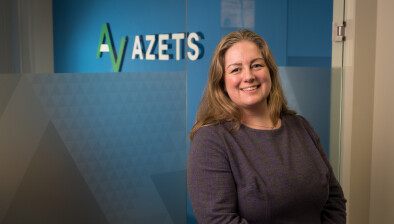Azets: More costs for employers as real-time benefit reporting looms

Mark Pryce
A Scottish business tax adviser has warned that hundreds of thousands of Scottish businesses are unprepared for new real-time payroll reporting rules set to take effect in April 2026.
The changes, which will require businesses to report income tax and Class 1A National Insurance Contributions (NICs) for most benefits-in-kind to HMRC in real-time, are expected to bring increased cash flow pressures and administrative costs.
The change will also mean that hundreds of thousands of Scots will no longer have their income tax collected in arrears but will be obliged to pay their tax in real time. End of year tax returns will quickly be phased out.
Mark Pryce, head of business tax with Azets in Scotland, warns that the new rules will create significant problems for many businesses.
He said: “From April 6th this year, businesses will start to pay 15% NIC on benefits-in-kind, such as company cars, health insurance and gym memberships. Just one year later - April 6th 2026 - businesses will also have to report any benefits in real-time whilst also paying the higher 15% NIC rate.
“The new real-time rules and higher NIC rates will add significant administrative pressures and costs to businesses already reeling from the tax increases in the last Budget.
“Businesses will have an option to implement voluntary payrolling in the next tax year – 2025/26 – to iron out any teething problems before the new real-time regime goes live on 6th April 2026.
“Given the potential for reporting mistakes, we would encourage employers to introduce voluntary payrolling from the tax year 2025/26 to iron out any teething problems and ensure that their systems and processes are ready for the switch.
“The changes are part of a move towards digital reporting in real-time and the collection of tax in real-time, usually monthly, rather than once a year.”
Mr Pryce added: “The key question for employers is whether their payroll software will be capable of dealing with real-time reporting. They will need to know in advance about expenses and benefits-in-kind going through the books, whereas in the current reporting system they can look back over 12 months to see what the costs were.”
Azets noted that beneficial loans, including overdrawn directors’ loans accounts and living accommodation provided to employees, cannot be voluntarily reported on the payroll and will remain reportable on a P11D form at the end of the tax year.
Announcements in the Autumn Budget confirmed that the mandatory payrolling of beneficial loans and living accommodation will be delayed beyond April 2026 but it will be possible to report these benefits on a voluntary basis from April 2026.
All other benefits will be subject to mandatory payrolling.
Concluding, Mr Pryce said: “Businesses are facing rising accounting and processing costs in addition to rising taxes. We would encourage businesses to reduce these costs by planning ahead for the new regime and taking advantage of the voluntary payroll reporting ‘window’ between 2025 – 2026.”







